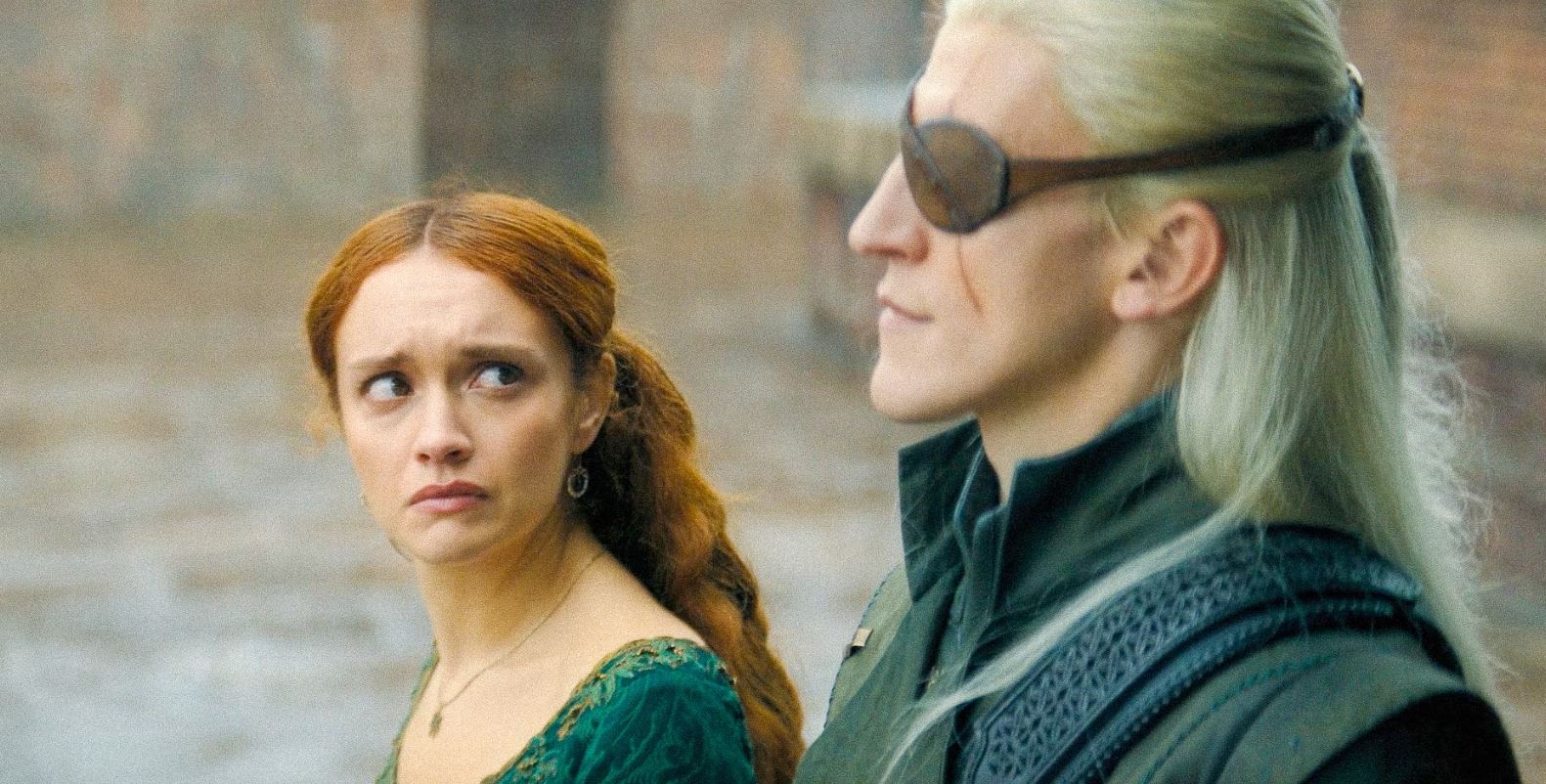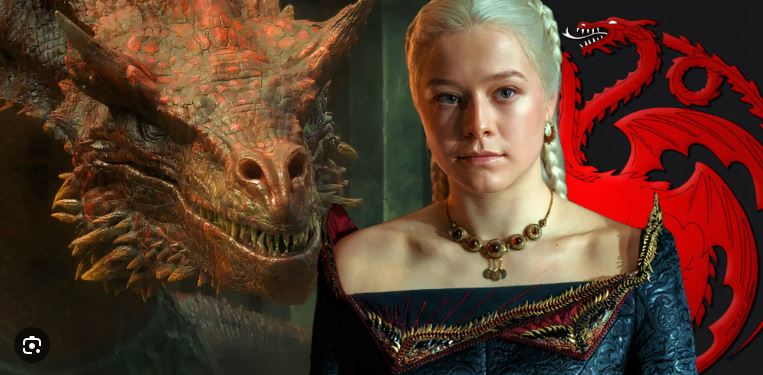House of the Dragon star Ewan Mitchell explains why Aemond removes his mother Alicent from his small council in season 2, episode 6. With weak leader Aegon out of commission, and his more ruthless brother Aemond now occupying the Iron Throne, the Greens are unleashing a new, more aggressive strategy in their ongoing war with the Blacks. As part of his bolder approach to war-making, Aemond in House of the Dragon season 2, episode 6 pulls the surprise move of removing his mother Alicent from the small council, depriving his advisory body of its only female voice.
But Aemond’s decision to send Alicent packing is not just another example of typical Westerosi misogyny, it is a deliberate, tactical decision that speaks to the character’s deeper motivations, as Aemond actor Mitchell explained in a recent interview. Mitchell says all Aemond really wants is to be with his mom, and by hardening himself against her now, he can finish their war faster and get back to living life. Mitchell compares Aemond’s philosophy to a character from Michael Mann’s Heat, explaining how love is a weakness in HoTD. Check out his remarks below (via Vanity Fair):
Yeah, it was tactical. I’ve always kind of played with different motivations for him, one of them being that he wants his mom. He feels like he has to become the war hero and finish this war up, so then he finally has time to spend with his mum. Every time that I played a scene with Olivia Cooke, I always visualized Aemond and Alicent sitting on a Dornish beach, just sipping on piña coladas. Far from war. He can finally have that time with his mum that he’s always craved, that he never really had.
He kind of had to harden himself into this weapon and manufacture himself into something lethal so he’s never seen as weak again. It’s a little bit like Michael Mann’s Heat. There’s a quote in it that Robert De Niro says: “Never get attached to someone you’re not prepared to walk out on in 30 seconds flat when you feel the heat around the corner.” That’s the code that his character lives by.
Aemond has a similar kind of code that helps him. That’s why he’s so easily able to walk out on the madam: Love is weakness in his world. Alicent challenges that code—she is, in fact, his kryptonite. With the people that you love most and the ones you want the most, you often have to push them out of the way to get what you want. It’s similar to the kid in the playground who bullies his crush. He just doesn’t want his mum at work. He wants to do the job at hand, and his mum can’t get in his way.
Why Aemond May Regret Removing Alicent From The Small Council

Alicent’s role on the small council has become increasingly diminished over the course of House of the Dragon season 2, following the departure of her father and ally Otto Hightower as Hand of the King, and aggressive Aemond’s ascension to the Iron Throne over the vacillating Aegon. Removing Alicent entirely was perhaps an inevitable move for Aemond, given her marginalization at the council table, but according to Mitchell, the character’s reasons for the move are more complicated than merely wishing to silence his only female advisor.
Aemond may feel he is better equipped to make hard, war-like decisions with his mother no longer at the table to offer a softening influence. But that softening influence might be the very thing Aemond needs in order to make truly wise decisions for the realm. Without Alicent’s moderating voice in the room, Aemond is more likely to make rash choices that could potentially lead the Greens straight into disaster.
Aemond has proven himself a ruthless character, but according to Mitchell, he still doesn’t believe he’s hard enough to do what needs to be done. The thought of an even more hard-hearted and violent version of Aemond is truly terrifying, given the shocking acts he’s already perpetrated in House of the Dragon season 2. But in his quest to harden himself against love, Aemond may have placed himself in danger of losing all trace of humanity, dooming himself and the rest of the Greens to a fiery fate.
